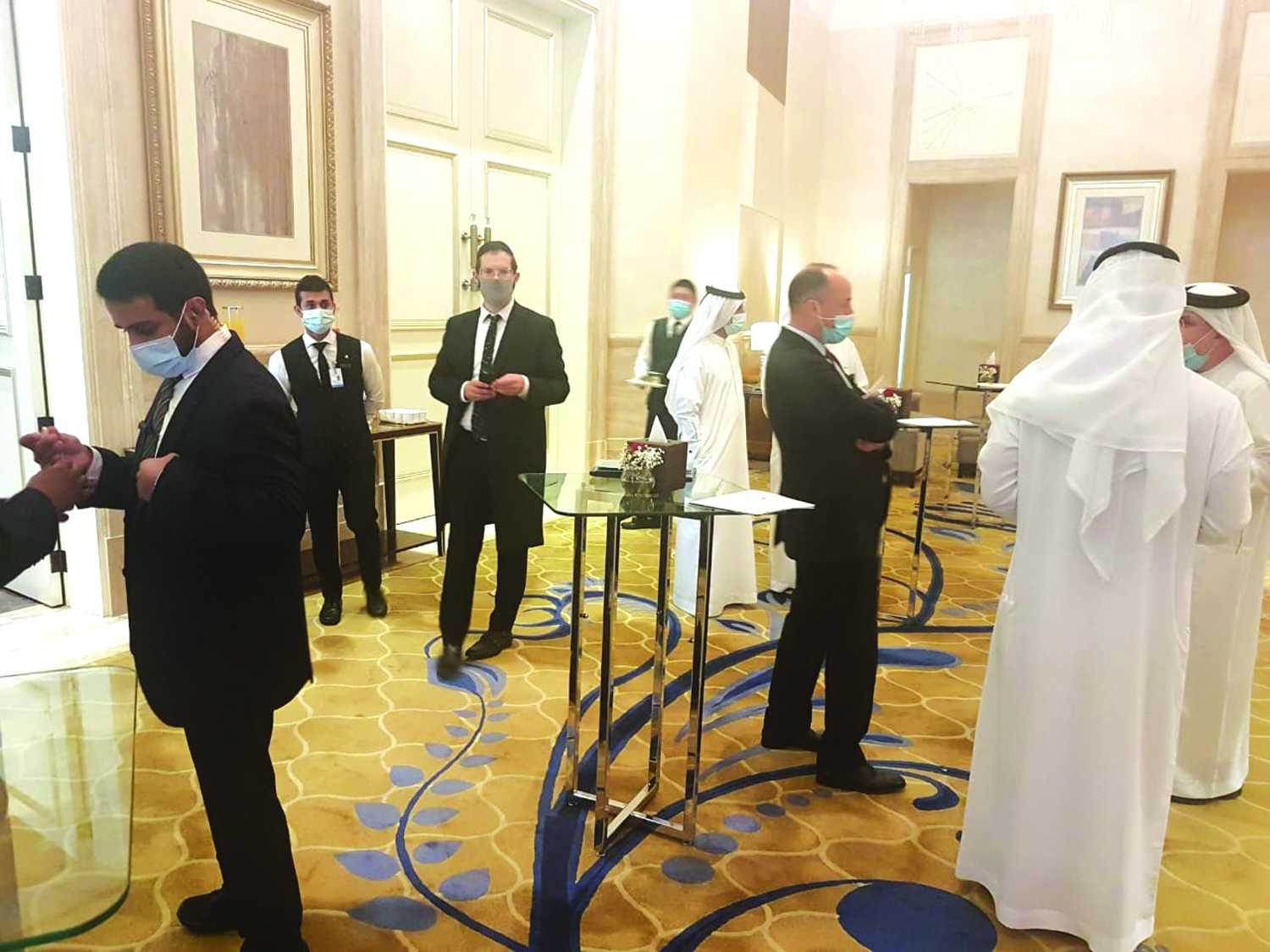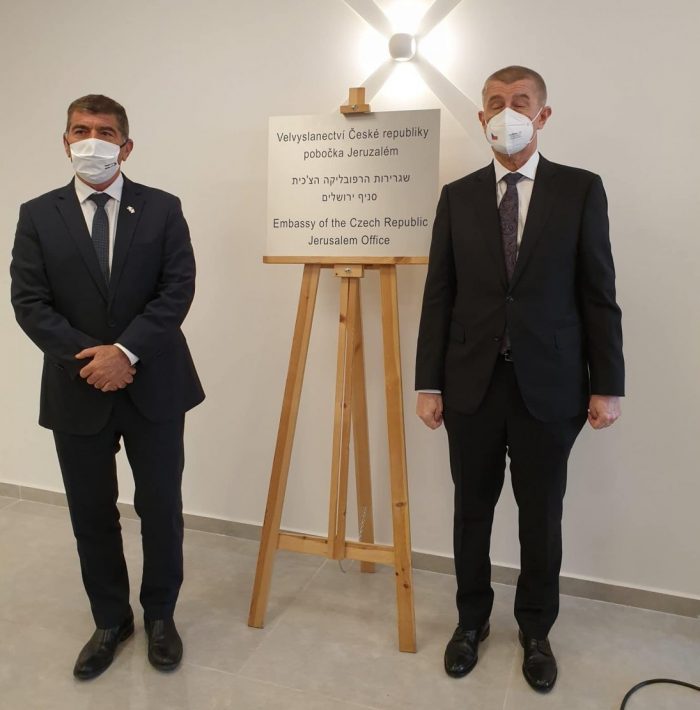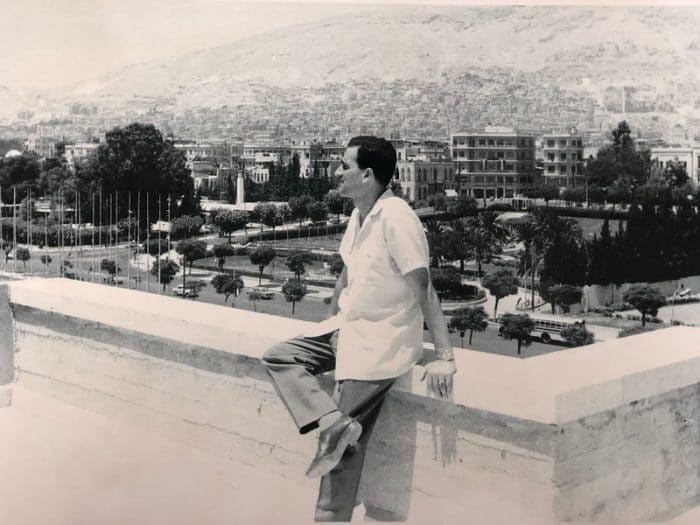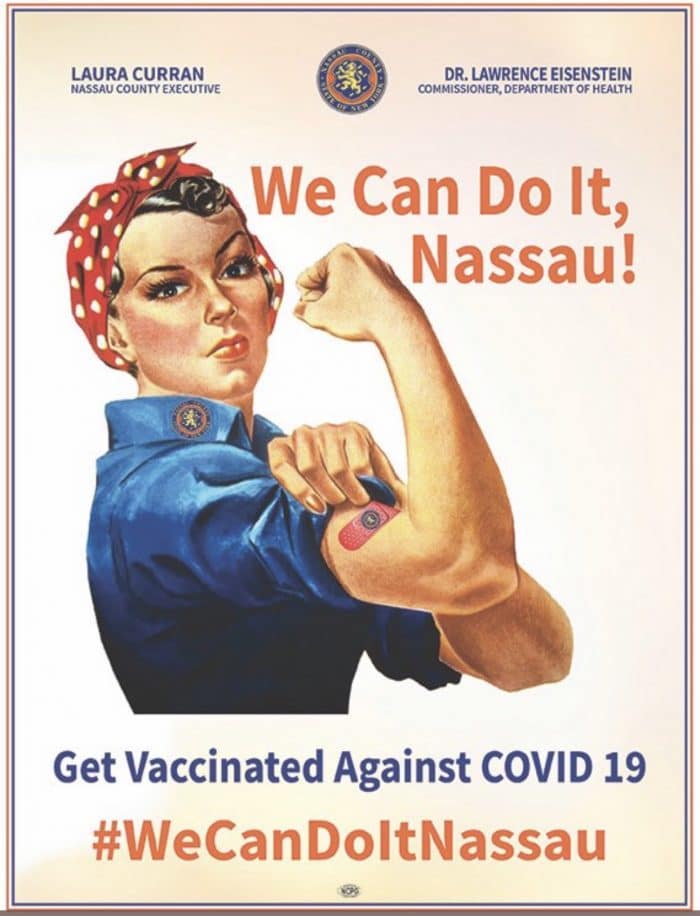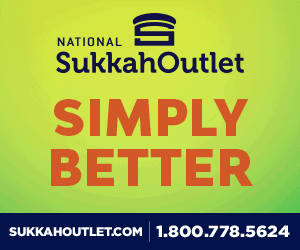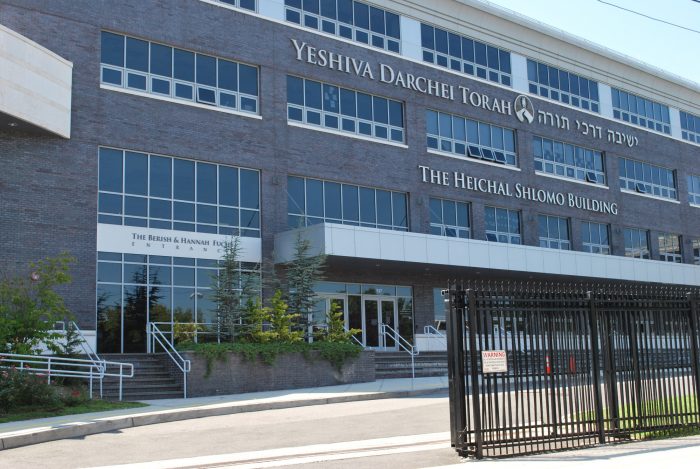By Susan Schwamm
Rabbi Krakowski, you’re the head of the OU Kosher Israel office.
Yes. And I’ve been working on expanding into the Gulf region, to reach out beyond the borders of Israel, including the Palestinian areas. Before I came to the OU, they were more reluctant to certify things in Palestinian territories. Now, that’s less so the case, and we’re definitely reaching out to other Arab countries.
So Dubai is going to be your new frontier?
We’ve been certifying companies both from the Emirates and other Arab countries for a while. It’s not something that’s brand new. Until the Arab Spring, we were certifying companies in Syria even. Not now, obviously, because of safety of mashgichim. I don’t think it’s safe to send even Muslims to Syria right now, let alone Jews.
These countries have no problem with you coming there on an Israeli passport?
I don’t come on an Israeli passport. I come on an American passport.
It took a little bit of ingenuity to get to the United Arab Emirates from Israel for the event.
Well, I was coming from Israel, and I had to get there before the delegation in order to kasher everything. With Covid, it’s a bit harder to travel. In the past, when I flew to the Emirates, I flew through Amman, Jordan, which is just one stopover and is not that much out of the way. But the airport in Amman is closed because of COVID-19. So I had to fly to Europe to fly to Dubai, as ironic as it sounds. On the way there, I flew through Bulgaria, and then on the way back, I flew through Athens, Greece.
I had to leave there very, very early in the morning to get to Bulgaria. There was a whole issue because they don’t allow Americans into Bulgaria. I had to pull strings there to be able to get to my flight. In the end, they took me in a border police car from one terminal to the other terminal, so I didn’t actually step foot over the border.
I was also busy with my suitcases because I had three oversized suitcases with food that I brought along for the delegation. Initially, they planned a fleishigs menu and I packed food for that, but they opted out of the fleshing menu when they heard what was involved. That was decided when I was already in transit, so I was bringing the food along. Coming home, I flew through Athens, but I had a very long stopover – almost five hours.
The meals were served starting on Monday. When did you get there to handle the kashering?
I worked with somebody locally to kasher the kitchen, and he started kashering it before I came. He sent me pictures and videos of the equipment that had to be taken care of in order to kasher the kitchen, so I was involved before I even got there. When I came, I followed up, and I checked up on it.
The truth is, in a certain way, it’s much easier actually to do these types of programs than to do a Pesach program somewhere or a vacation program.
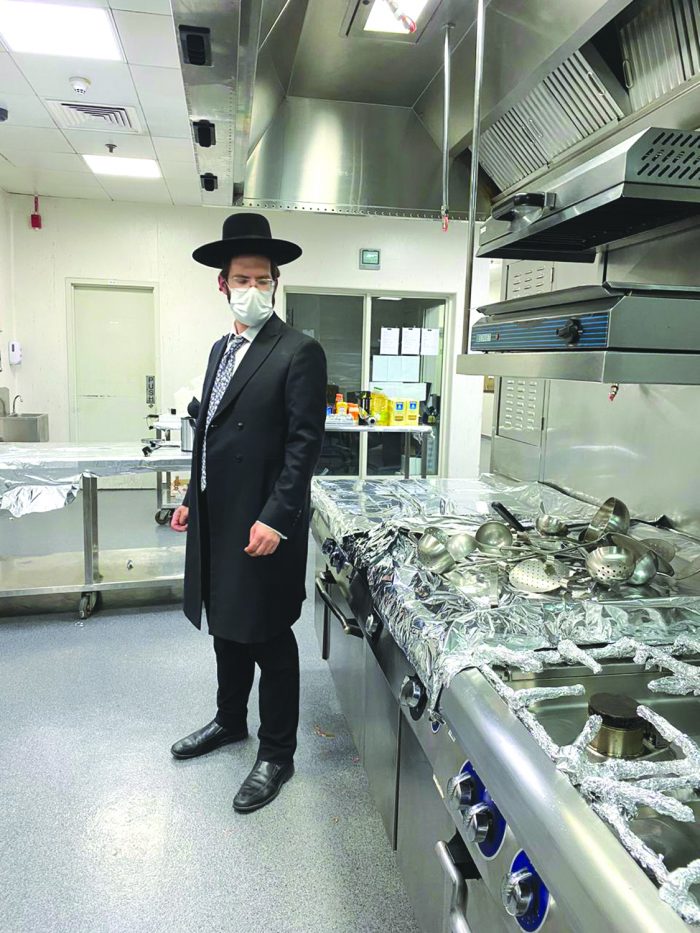
Really?
I did a similar program earlier this year in February in Saudi Arabia in Riyadh. It was for the COP, the Conference of Presidents of Major Jewish American Organizations; they had a conference there. At the invitation of the Royal Court, I did the kashrus there for them. In both of these instances – in Saudi Arabia and in the event in Dubai – when you’re doing something for the Royal Courts of these types of countries, they spare not a cent. Whatever it costs, whatever you need, if this is what the royalty wants, that’s what’s going to be. They want to be hospitable, and they want to be able to feed their guests and to honor them with food.
How did that manifest itself in Dubai?
Well, to give you an example, this time they used new plates at every single meal. There were people eating kosher and not kosher next to each other at the same meal. Hotels have codes that they need to use a certain standard and certain size and everything has to be the same pattern in terms of their crockery and their cutlery, flatware, silverware, etc. The event was at the St. Regis in Abu Dhabi. For this event, all those things were brand new at every single meal. They’d give us 150 pieces brand new for all our guests. A mashgiach stood and saw them unwrapping them from the boxes before each and every meal.
To ensure that there wasn’t any confusion as to what was kosher or non-kosher, the plates that were used for the kosher eaters did not go back into the kosher kitchen after the meal. They were sent to a different area in the hotel, to a different kitchen, where they were washed and used for non-kosher. They did this – using new dishes, etc. – without batting an eyelash. There was no worry about costs involved.
In terms of not sparing any expense, what else did that translate into?
For one of the dishes, the chefs needed truffles. Truffles are kosher. You just need to check them to ensure they’re not infested with bugs. So I told them that they could use them. But then, a little while later, I saw a jar of truffle sauce and I look at it and it had wine, which is obviously not kosher and had other ingredients in the sauce. I said to him, “This doesn’t have a kosher certification. This isn’t kosher.” And he told me, “You told me I could use truffles.” “Well, you can use truffles, but this is truffle sauce, and it’s not kosher.”
He said, “Oh, man, what are we going to do? That’s what I put on the menus already.” So I said, “OK, make your own truffle sauce.” “That’s a great idea. Let me get truffles.” He started making phone calls. Truffles are a relatively high-end type of food. So we started making phone calls trying to get ahold of fresh truffles. We finally found one place that had them but they told him they couldn’t deliver.
He only needed one or two kilos of truffles. He told them that he’d pay them 2,000 dirhams – which is around $600 – for the truffles. “Send it in a taxi and meet me here in 15 minutes,” he said. For them, the word “budget” doesn’t exist.
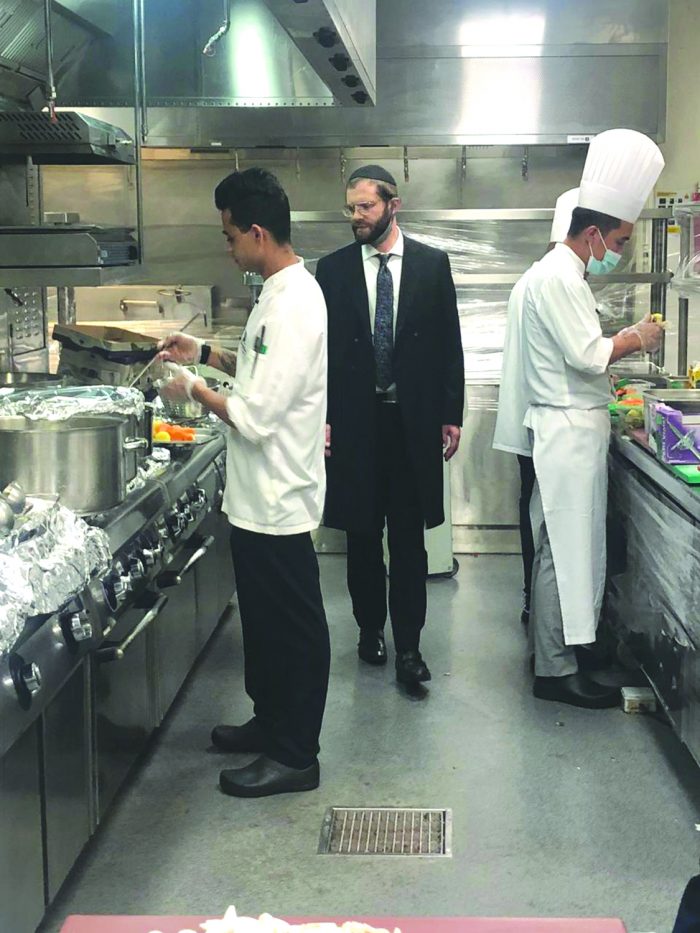
They’re very cooperative because this is coming from His Royal Highness. This is what the royalty wants. In that culture, this is royalty, this is a dynasty, they listen to every word of what he says.
The more liberal Muslims are very excited about the accord because they can’t wait to – unfortunately – come to Tel Aviv to party. Obviously, that’s not what I want to hear. But that’s the truth of it. But when you speak to the more conservative Muslims, as they call themselves, and you ask them what their thoughts are about the accord, they say, “We trust our royalty implicitly.” They believe that they all come from Mohammed and that they’re innately holy just by default. And the royalty has immense power. There’s no saying no to them. When you’re the one who is asked to do something by the royalty, it’s a different ballpark. No one second-guesses you or balks at what needs to get done.
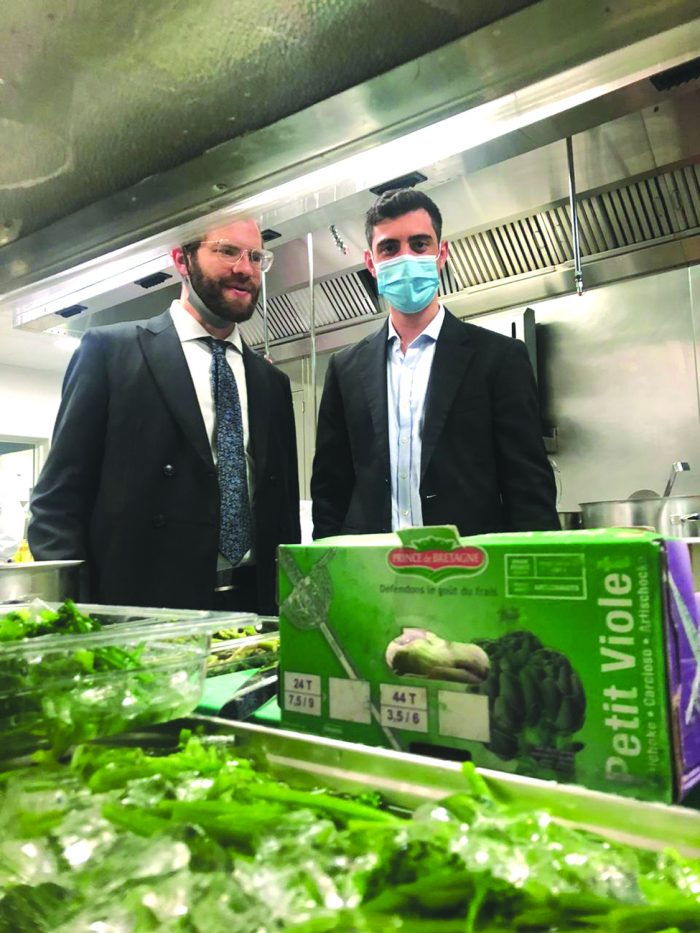
Do you speak Arabic?
I have a pocketful of vocabulary but not more than that. I would like to learn, but that hasn’t happened.
Who translated for you?
They all speak English fluently over there.
It’s not like Jordan or Egypt, where many of them are uneducated. Maybe if you go to the marketplace or other places, you’ll meet some common folk in the UAE who are less educated. But, by and large, most of the people you’re dealing with either in terms of hotel staff and other things speak English fluently.
Wow, that’s refreshing. What was on the menu?
Originally, as I mentioned, we were going to have a meat menu and for various reasons because of complications in the kitchen, they decided to take off the meat from the menu.
I brought kilos of cheese from Israel. They had dairy products. There was fish which they bought locally but they cleaned and gutted and it in the hotel under kashrus supervision. Some of their fish I let them descale as long as they left some scales on, just for halachic reasons, we needed a siman. The kosher menu, by and large, had two fish options and a vegetarian or vegan option at every meal for a main course. And then there was all sorts of different side courses. Breakfast was buffet.
Were you able to taste a little bit?
Unfortunately, probably too much.
The caterer lives in the Emirates, correct?
Right. It was catered by Elli’s Kosher Catering. Her husband is the president of the Jewish community in Dubai. She runs more of a mom-and-pop type of business right now, although she’s signing a contract for an industrial kitchen and then she plans on getting OU supervision on a regular basis. And right now, by request, if somebody wants OU on the event she’ll bring out OU mashgichim to make sure that it’s up to OU standards and do it that way.
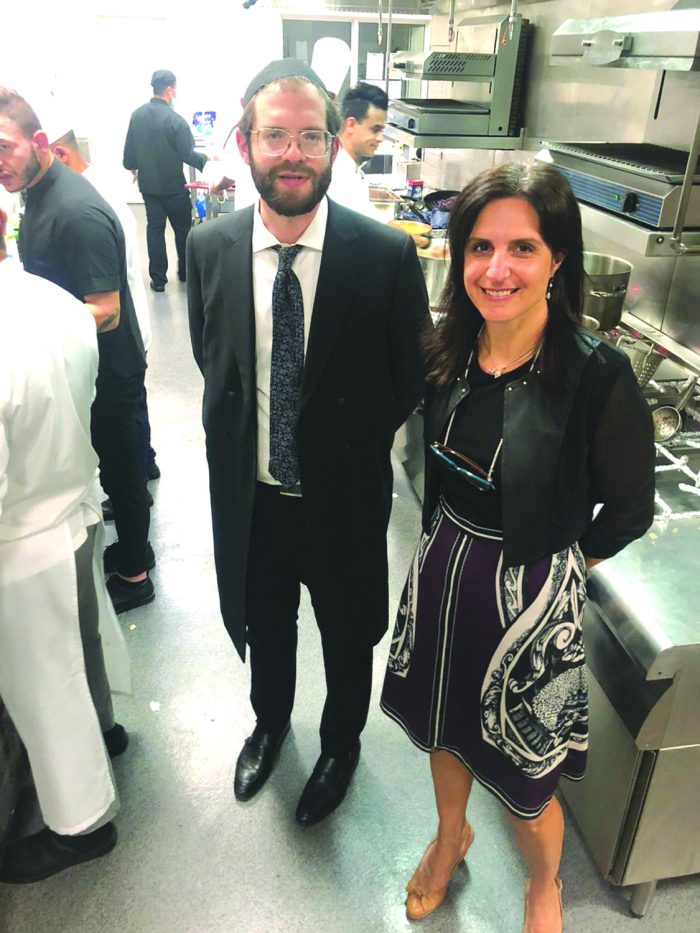
Who invited you to ensure things were kosher at the event?
Meir Ben Shabbat. He was the head of the delegation on the Israeli side. He made it clear that he was only going to eat fruits and vegetables, nothing else, when he got to the UAE. But they said, “No. We want to get you kosher food.” So they reached out to Elli’s Kosher Kitchen. They worked with her in the past on other types of things for what’s called MOPA, Ministry of Presidential Affairs, and the Emirati Institution especially for His Highness the Crown Prince of Abu Dhabi. Elli reached out to me and asked me if I would come. She didn’t just want a mashgiach. She wanted somebody very identifiably OU.
I told her that I have two bosses: my wife and Rabbi Genack, head of OU Kosher. And that I had to check with both of them.
You mentioned that you were in Saudi Arabia in Riyadh. What’s the most interesting location that you’ve been to in order to certify a meal or products?
It’s kind of hard to say. I guess Riyadh is probably the most far-out, the most unthought-of type of place to go. The OU certifies a few companies in Saudi Arabia on a regular basis and people from the office in New York go there, but it’s not typical of kosher assignments. But yes, each place is a little different. Each circumstance is different.
For this event, there were challenges that I didn’t have before. In Riyadh, for example, everyone was eating kosher. Over here, in Dubai, we had people sitting at the same table eating kosher and non-kosher one right next to the other, so it presented an obstacle in terms of how to create a separation between those eating kosher and not kosher. For one, we had to ensure that everyone got the right meal, and halachically, there’s another issue. It’s like if you’re sitting at a table, and you’re eating dairy and your friend is eating meat. The halacha is that you have to put a heker, something to remind you that you can’t eat from the other person’s plate because otherwise, your friend could say, “Wow, this sandwich is really good,” while she’s in the middle of eating her cheese sandwich. You want a taste and you just took a bite out of your meat sandwich a minute ago and you’re like, “Well, yeah. I’ll take a taste,” and you cut off a corner of her sandwich and eat it and then you just had milchigs right after fleishigs. In order to avoid that, Chazal say that you have to put something in between you, so you shouldn’t end up sharing from the other person’s food. The object that you put down shouldn’t be something that you usually have on the table, like a salt shaker. It should be something different as a reminder.
Over here, I had a different issue because many people don’t think of this issue when it comes to kosher and non-kosher because most people are never put into that situation. It’s really not a common scenario. Even those who know halacha and are familiar with halacha don’t realize that there is this problem. And so, to take care of this, I came up with a little card with the letter K on it that we put in front of each person’s plate. This way, we would know who was eating kosher and it would be a heker as well – it reminds people the whole time that they’re eating that they’re eating kosher.
What was interesting was, once I told the waiters to give the cards to whoever was eating kosher, they said, “No. No. No. We don’t want them to feel like second-rate, like we’re marking them because they keep kosher.” So they put down a card at every seat at the table. Once people sat down, the waiters asked if they wanted a kosher meal, and if they didn’t, then they took away the “K” card.
That is very respectful.
Yes, that was the Emiratis’ approach because they want to be hospitable.
It’s interesting because one of the Arab newspapers quoted me as saying how making things kosher in Dubai is important to the peace process because if people can eat together, it brings about peace. But truthfully, that was taken out of context and is the opposite of what is true via a halacha vantage point. In halacha, Chazal made a lot of takanos to avoid getting too close to the other nations. Bishul akum, pas akum, all these types of things, so we don’t get extra friendly. One time I spoke to a group on a college campus and I pointed out that if they want to maintain a Jewish identity, kosher is the best way of doing it because every time they sit down at a social event, eating kosher reminds them of who they are.
So, it’s true that they’re making things kosher in the UAE to allow Jews and Arabs to eat together, and it bridges a certain gap in terms of that to make peace. But the fact that they need us to do it and that we know that the food needs to be kosher, that helps us maintain a certain healthy distance to live in harmony but not, chas v’shalom, to cause detriment to Am Yisrael, with assimilation, etc.
To me, it was very important that from the onset of this whole process that kosher came into place because I think that speak volumes in both directions – both by accommodating our needs and at the same time keeping things distinctive between the nations.
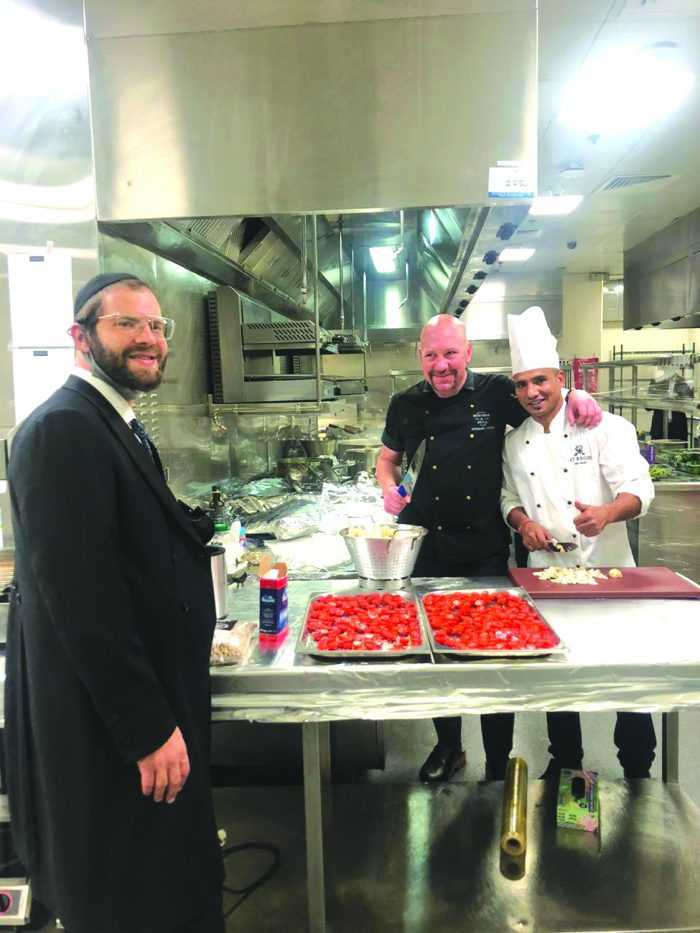
Categorised in: Local News, World News

